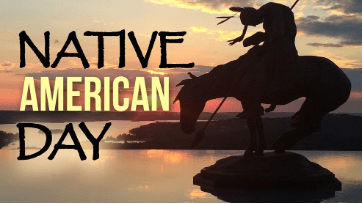Authored by, Sean Preuss, Academic Success Manager, Bryan University
An important but little-known holiday is coming up. Over the next two weeks, four states will celebrate Native American Day. This holiday is a celebration of the varying Indigenous communities that preceded the Europeans’ arrival in North America. The focus of the holiday is to celebrate the contributions of Native American communities, especially the local tribes, to what is now the United States. Native American Day is celebrated in California, Nevada, South Dakota, and Wisconsin.

The days and methods of celebration vary across states. CA and NV celebrate on the fourth Friday in September (which falls on the 25th in 2021), whereas SD and WI celebrate on the second Monday in October (11th). Some celebrate by distributing educational resources about the background, culture, and traditions of local Indigenous tribes. Other states host activities, such as social gatherings at churches and pow wows, where culture is celebrated through conversation, singing, and dancing.
An additional 14 states celebrate Indigenous People’s Day. This holiday is celebrated on the second Monday of October (11th). Indigenous People’s Day differs from Native American Day in that it is not specific to the people who were natives of a local state or even this country. “Indigenous” is a phrase that’s not limited to any one geographic region; it’s inclusive of all pre-sovereignty communities in all countries (e.g. Mayas in Mexico, Ainu in Japan).
In total, there are 574 federally recognized Native American tribes in the United States. Alaska is the home of the most tribes, with 229 originating out of the region. Bryan University’s home state, Arizona, is the origin for 22 tribes. Currently, over 4 million total Native American and Alaskan Natives live in the United States, with the largest current tribe being the Cherokee Nation. To celebrate the contributions of these tribes to our shared country, consider attending a Native American Day or Indigenous People’s Day celebration, or learn more about their culture by reading more about Native American culture (one suggestion: Native Knowledge 360
Terms of submitting this form: I agree that Bryan University may contact me regarding educational services via email, telephone, SMS text message, or automated technology at the email address and phone numbers provided. Message and data rates may apply. Message frequency may vary. Text STOP to cancel anytime. This consent is not required to enroll. For questions, call 1-888-768-6861. Visit our Privacy Policy.